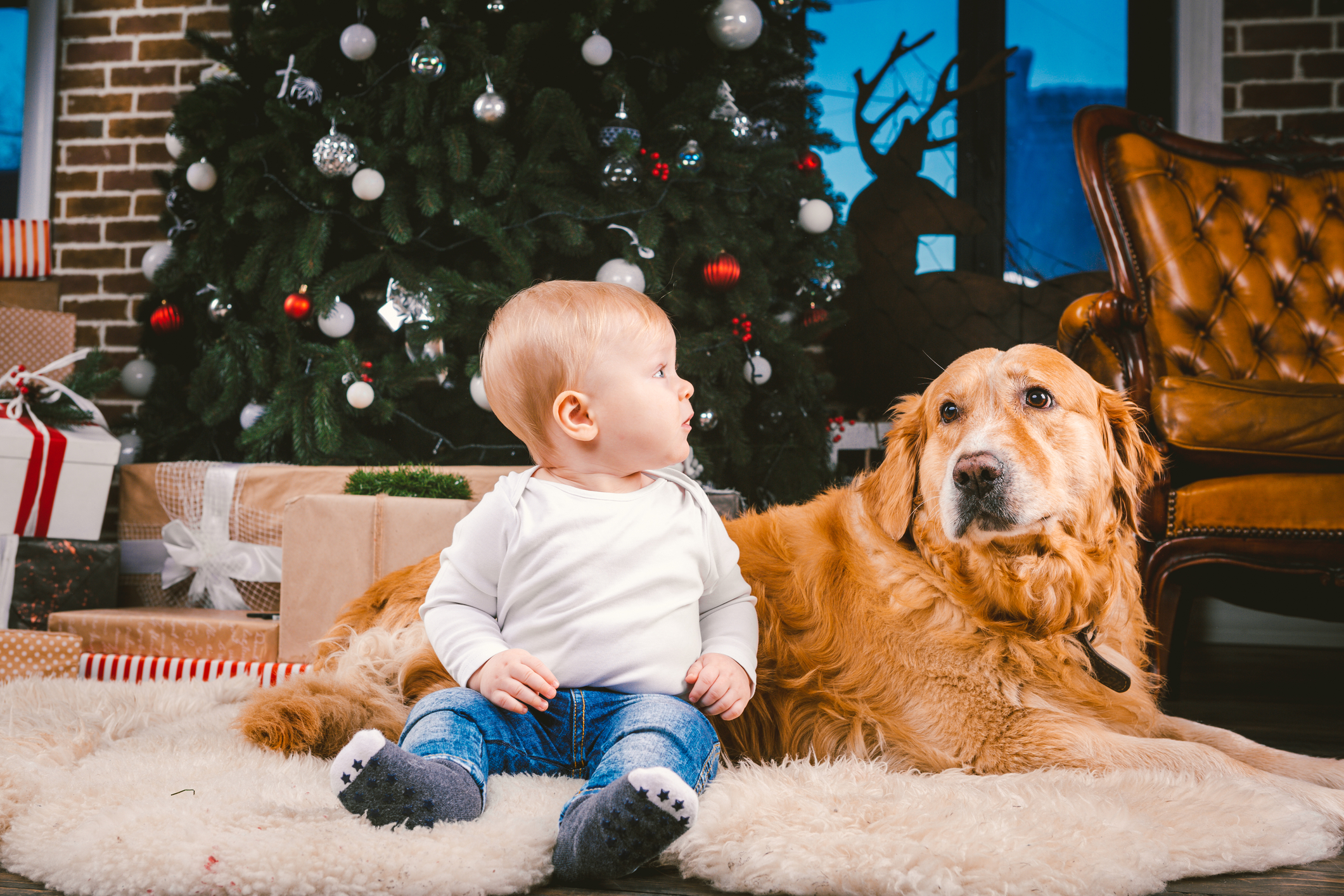Tips for a Pet Safe Christmas Tree
There are so many things that change in your home during the holidays! Packages coming to the door, lots of new people in and out, decorations, big meals with special food, wrapped gifts, and best of all a new tree in the main part of your home. As much fun as this can be, it can also pose some stress and risks to your pets.
Here are a few Christmas safety tips to help you keep your fur family safe this holiday.
1. Pet-Proof The Christmas Tree
Perhaps the epicenter of holiday danger for your pet is the Christmas tree. Failing to pet-proof the tree could result in upset stomachs, painful injuries, catastrophic veterinary bills, or even tragedy this Christmas season.
Pet parents should always observe dogs and cats around the tree at all times. If possible, set up your tree in a room that you can easily close off when you’re not home. Many pet owners also create a barrier using a plastic pen or baby gate so pets can’t access the tree.
Christmas trees are in danger of falling over with your pet’s help. You can easily tether the tree to the ceiling with a plant hook secured into the ceiling and a thin wire or fishing line. Yes, you can still put a topper on the tree! Enthusiastic Labrador tails or kitten scampering up their new-found scratching post will appreciate not having the tree fall over on them. Also, avoid pine needle and tree water ingestion.
2. Beware Christmas Tree Water
Pet parents who bring live pines, spruces, and firs inside for Christmas should make sure the water reservoir inside of the tree stand is not easily accessible to dogs and cats. As the tree drinks water, it can release sometimes-toxic sap into the stand that smells tasty to pets. Many fresh trees are also preserved with pesticides and fertilizer water additives, including aspirin. Aspirin can be fatal for cats because they lack a necessary protein in their livers to break down the drug. While veterinarians occasionally prescribe aspirin for dogs to treat various conditions, too much can prove deadly. Block access to the tree stand by thoroughly covering it with aluminum foil and a well-wrapped tree skirt.
3. Be Careful With Christmas Lights
All the lights and baubles you use to adorn your Christmas tree and your home sure are pretty, but they can pose a real threat to your pet. Veterinarians say pets can easily die from electrocution, internal injuries, or intestinal blockage after enjoying a decorative snack. Be sure you fasten holiday lights to your tree and place cords out of reach of your curious pet’s mouth. Block access to any loose cords or wires.
4. Ornaments Can Be Deadly
Those might look like tree ornaments to you, but to Fido and Fluffy, they are just potential toys in a festive display. Chewing on ornaments can cause cuts in the mouth, throat, and digestive system, as well as other serious injuries. Tinsel, yarn, strings and other items with long strands are fascinating to your pets, especially cats. The barbed tongue of a cat prevents them from spitting out a strand, so they continue to swallow it. Avoid using these products in areas where pets will find them. Avoid strings of popcorn and cranberries as they set up our pets for ingesting the strings.
5. Pick Safe Christmas Plants
Mistletoe and Holly are very toxic. Yew, the evergreen many people have in their landscaping is extremely toxic. Avoid bringing clippings of these plants into your home to use as garland unless you can identify the variety. Poinsettias are not toxic, but any plant ingestions can lead to oral irritation, vomiting and/or diarrhea.
6. Keep Gifts And Candy Out Of Reach
Surprisingly, there are several foods that humans can safely eat that cannot be safely consumed by our pets. Thes include chocolate, raisins and grapes, macadamia nuts, alcohol-containing candies, and sugarless products containing Xylitol. Avoid putting food-containing packages under the tree, wrapped or unwrapped, when your pets will be in the room unsupervised. An alcoholic drink innocently set on a low table or the floor can be quickly raided by a pet, leading to serious consequences.
If you believe your pet may have eaten something he or she shouldn’t have this holiday season, contact your veterinarian immediately. Keep the numbers to the nearest emergency veterinary hospital handy if harm or injury should happen after hours.
Finally, call the 24-hour ASPCA emergency poison hotline at 1-888-426-4435 if you have any concerns about potentially harmful substances ingested by your pet. Specialists are available to aid you every day of the year, including Christmas.
What steps are you taking to keep your pets safe this Christmas? Do you have any other tips for pet parents? Let BSG know in the Facebook comments!

